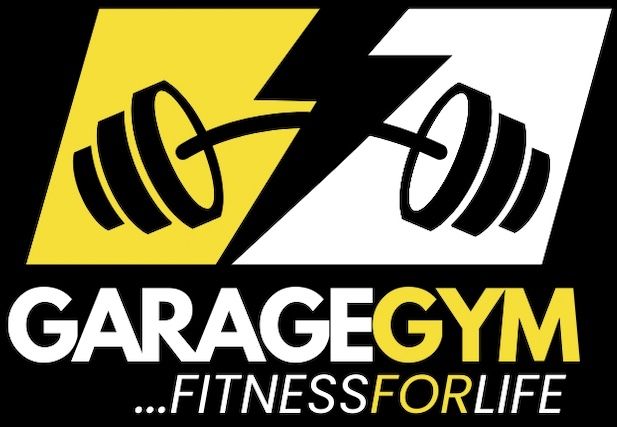
IF YOU'RE LOOKING TO START YOUR FITNESS JOURNEY... YOU'VE COME TO THE RIGHT PLACE. I CAN HELP!

My name is Rodney. I'm a fitness & nutrition coach. I'm passionate about helping people get to place in their fitness & nutrition journey where they're equipped, and feel confident to continue on their own.
Various sports and weight training early on in life started a passion that has continued to this day. I have been active in mountain biking, I've run marathons, participated in sprint distance triathlons, and have completed both half and full ironman events.
Like most people, I just want to stay healthy and active and be able to enjoy life and all it has to offer. Both myself and my wife enjoy the outdoors -- we love hiking in the local mountains and going on week-long backpack trips in remote places.
But these activities become more difficult with each passing year. Having a structured exercise and nutrition plan allows me to keep doing the things I love.
While exercise is essential for people of all ages, consistent and purposeful weight training combined with proper nutrition becomes so much more crucial for overall health and quality of life as we get older.
THE NEED FOR STRUCTURED EXERCISE AS WE AGE
Around age 30, adults naturally begin to lose muscle mass, a condition called sarcopenia. After the age of 40, you will typically lose 1% of your muscle mass per year. Your metabolism slows and bone density decreases. For women, the transition into menopause can result in significant bone loss, weight gain, joint pain and stiffness. For men, andropause marks a gradual decline in testosterone levels leading to physical and psychological, changes. Unlike menopause, it's a gradual process rather than a sudden stop.
Resistance training is the most effective way to slow, stop, and even reverse these conditions.
- It strengthens the muscles, ligaments and tendons surrounding the joints. When these tissues are strong, they act like a brace to protect the joint, alleviating pressure and reducing pain from conditions like arthritis.
- Muscle tissue burns more calories at rest than fat tissue. By maintaining or increasing muscle mass, you can help keep your metabolism from slowing down, which is crucial for managing weight and avoiding unwanted weight gain as you age.
- Studies show that regular strength training can reduce symptoms of depression, boost self-confidence, improve sleep quality, and elevate your overall sense of well-being.
THE ROLE OF PROPER NUTRITION
With age, metabolism slows down, and we become less physically active, so we need fewer calories to maintain a healthy weight. However, our bodies become less efficient at absorbing and utilizing certain nutrients, meaning we need higher amounts of specific vitamins and minerals, such as calcium, vitamin D, and vitamin B12.
- Contrary to popular opinion, you cannot turn fat into muscle. A proper diet provides the necessary fuel for workouts, building blocks for muscle growth, and nutrients for recovery.
- Poor nutrition can weaken the immune system and increase the risk of developing or worsening chronic conditions like heart disease, high blood pressure, type 2 diabetes, and certain cancers.
- Good nutrition fuels the brain and is linked to better mental sharpness and a lower risk of cognitive decline. A diet rich in omega-3 fatty acids, fruits, and vegetables can improve focus and decrease the risk of Alzheimer's disease.
Having a strong and healthy body today will determine how you'll function in the coming decades. If you want quality of life later on, you've got to start working at it today!
THE BENEFITS OF A FITNESS COACH
That's a really good question! There's lots of information online as far as workout plans and nutritional information, and a monthly membership to a local gym is fairly inexpensive. So why hire a personal trainer? Why GarageGym? Why me?
- I will assess your individual needs, fitness level, and goals to create a customized workout plan tailored specifically to you. You can be confident knowing that the training you'll receive is appropriate for your age and body type.
- I'll adapt your plan as you progress, adjusting exercises, intensity, and duration based on your changing abilities. I'll help you work towards your goals in the most efficient way possible. You'll spend less time in the gym and more time doing the things you love!
- You'll have a safe, secure, and private place to workout -- somewhere you can stay committed to your fitness goals. NO WAITING.. NO DISTRACTIONS. NO PRYING EYES. NO JUDGEMENT. And I'll be with you every step of the way providing feedback, and setting achievable milestones and I'll be a source of motivation, especially when you're feeling uninspired or discouraged, helping you push past plateaus and maintain consistency.
- By learning the correct techniques and form, you'll be less likely to experience strains, sprains, or other injuries, allowing you to continue your fitness journey without setbacks. You'll experience greater improvements in strength and muscle mass compared to working out alone.
- As you achieve your fitness goals and experience the positive changes in your body and mind, your confidence will naturally increase. This newfound confidence can extend beyond the gym, positively impacting other areas of your life -- Exercise is known to have a positive impact on mental health, reducing stress, anxiety, and symptoms of depression.
- I'll give you the tools you'll need to be successful on your own. You'll only be paying a trainer for a short time!
Whether you're just starting your fitness and nutrition journey, you simply want to maintain the habits you already have, or you'd like some help pushing past existing plateaus, CONTACT ME and let's talk about how GarageGym can help you succeed!

